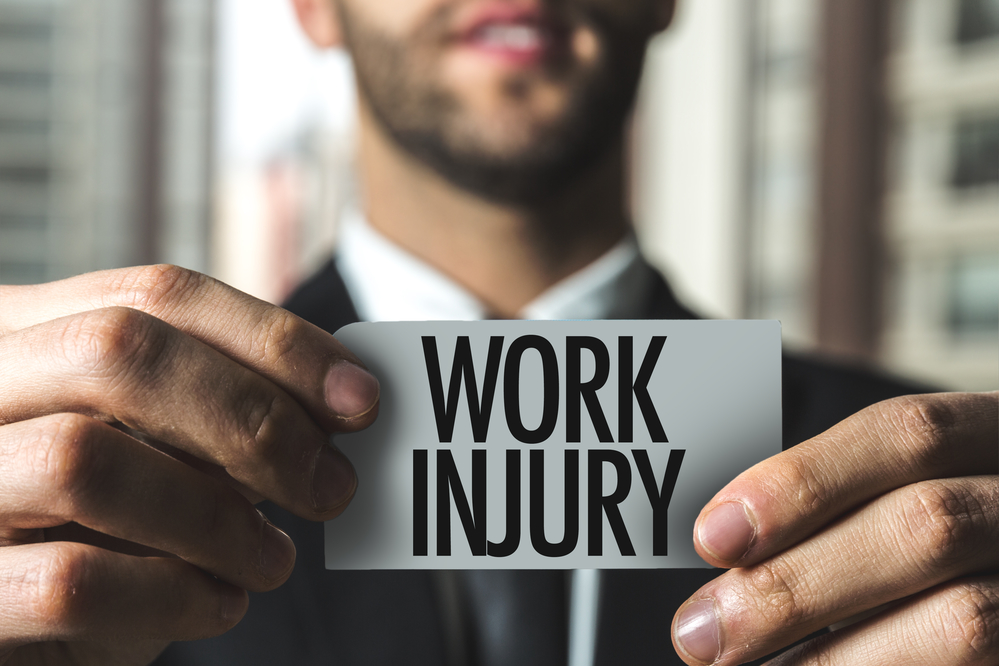Getting hurt on the job is painful, scary, and stressful. Your employer is legally obligated to carry workers’ compensation to protect you when this happens. Your medical expenses and lost wages should be paid while you recover.
But what about when you’re ready to return to work? It’s rarely as simple as showing up on a Monday and clocking in. Here’s what you need to know.
Ask About the Return to Work Policy

Before you return to work, talk to your employer about their return-to-work policy—if they have one.
They may have a system for accommodations, temporary light-duty work, and other procedures. If they don’t, this might be the time to create one.
Your employer has every incentive to get you back to work. The quicker you return to the job, the sooner workers’ compensation stops paying your lost wages. But knowing what the plan will be can ease some of your stress about what happens next.
Follow Your Doctor’s Instructions

There are two important things to remember about the doctor’s instructions:
- If they release you to return to work, you must do so or risk losing any continued workers’ compensation benefits. Yes, you have to do it even if you’re not sure you’re ready to return.
- You and your employer need to follow any restrictions your medical provider places on your ability to work. If you’re supposed to sit, sit. Don’t lift anything if you’re not supposed to lift over a certain weight. Your employer shouldn’t force, coerce, ask, or guilt you into doing more.
Take Things Slowly

You might be ready to return to work because you’re stressed about money or tired of being at home.
When you return, it would be best to ease back into things. Pay attention to your injury and how you feel.
Most importantly, keep the lines of communication open with your employer and your doctor.
No one should risk the chance of you re-injuring yourself. And if anyone can blame you for the subsequent injury, workers’ comp might not want to pay the claim. So don’t do too much at once.
Document Problems or Concerns

What should happen after a workplace injury is that you recover, return to work with or without restrictions, and slowly return to normal.
Unfortunately, for many workers, this isn’t the reality. If you think you’re being treated unfairly, you need to document your experience.
Please note what happened, who said or did it, and what day and time it happened.
Some examples of problems you should document include:
- Asking you to exceed medical restrictions.
- Acts of retaliation for being injured.
- You may be told anything that doesn’t match the return-to-work policy or the parameters set when you return to work.
When to Contact a Workers’ Compensation Lawyer

If you, as an injured worker, experience problems with your workers’ compensation claim directly after your injury or when you return to work, you don’t have to deal with it alone.
You need someone who will protect your rights and interests. A workers’ compensation lawyer in Las Vegas can do that for you.
Contact an attorney in any of these situations:
- Your workers’ comp claim is denied.
- You feel your employer is retaliating against you for being injured.
- Your doctor, designated by the insurance company, isn’t listening to you.
- You’re being asked to exceed your work restrictions.
- Even though it’s one of your job’s policies, reasonable accommodations aren’t being provided.
- Anytime you feel you’re being treated unfairly or not getting the care or compensation you deserve.
Conclusion
Getting hurt on the job can be traumatic, devastating, expensive, and a long road to recovery.
Your employer is legally obligated to help you through the workers compensation system, but it’s also right. When you’re ready to return to work, your job shouldn’t cause you even more problems.
When you’re ready to return to work, your job shouldn’t cause you even more problems. If that happens, find a workers’ compensation attorney to fight for you. Contact Ed Bernstein and Associates today and let us help you.
